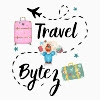 |
| Image(s): FreeDigitalPhotos.net |
Unfortunately, language is not merely a collection of words and grammar rules; embodying the efforts of a language community that conceptualizes and interprets the work as an expression of culture, human experience and relations. Moreover, each language has its own set of rules for grammar and words. So despite its convenience, technology is constrained by its design limitations and lack of cognitive abilities. Simply put, translation software is unable to handle new (advanced) situations appropriately. It would take much time and effort to program translation software that is advanced enough, and/ or intelligently programmed enough to do translation the caliber of translation companies.
Just as a dictionary cannot anticipate situations where languages evolve over time (changing the meaning of the word as time goes by) or contain all solutions, it is a challenge for translation software programmers as it is nearly impossible to anticipate (all) situations in which language evolves over time or contain all solutions and rules. As a result, translations services by translation software are limited, not having the flexibility and intuitiveness (e.g. phrasing, grammar and vocabulary) as compared to translations services offered by translation companies.
While translation software, such as Google Translate or others which you can install on your computer are good for casual translations, you need professional translations for business or professional (e.g. diplomatic) purposes, it might be best to engage the services of a preferred translation company. Doing so would not only make what you want to translate more professional, but also using more appropriate words, especially when it comes to topics that require sensitivity to the total context of a document or speech (e.g. diplomatic/confidential business/technical purposes).
Software translation does not have the sensitivity to understand and translate the total context of a document or speech, nor does it have the knowledge (intuitiveness) of the culture of the people whose language you want to translate to. It only provides literal, word-for-word translations while struggling to account for the nuances of syntax and context. In addition, online translation software, such as Google Translate, poses security risks if not used carefully.
In contrast, translation companies have professional human translators who can carefully analyze each word in a sentence and paragraph, ensuring that the true meaning is accurately conveyed in the translated text.
So which option is better? Well, that would depend on your requirements and constraints (if any). If you need to translate casual conversations and documents/articles, translation software is good enough. However, if you have legal, financial, medical & technical, or confidential requirements, a translation company would be a better choice.
Brought to you by Rosetta Translation

0 comments :
Post a Comment